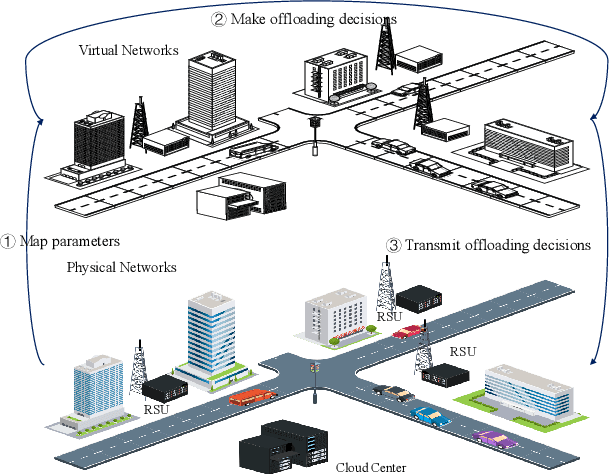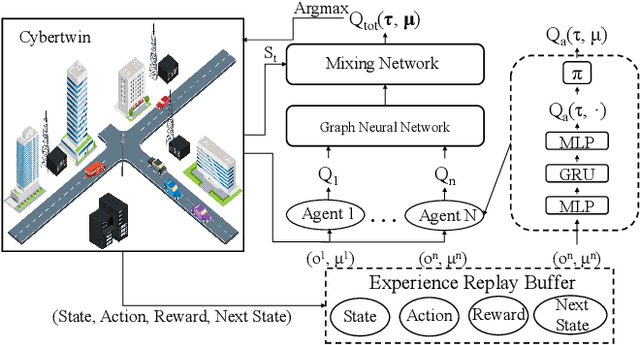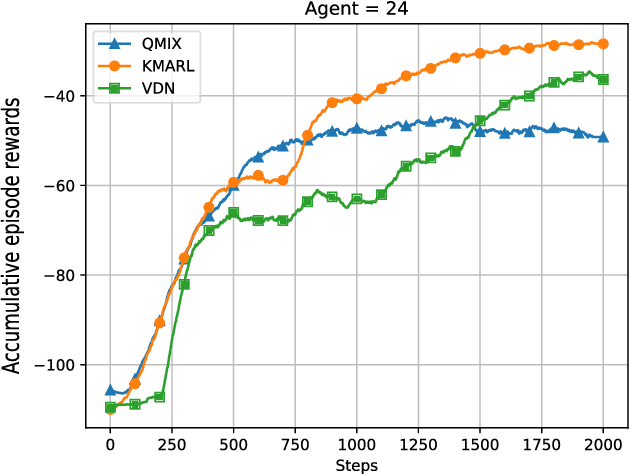Knowledge-Driven Multi-Agent Reinforcement Learning for Computation Offloading in Cybertwin-Enabled Internet of Vehicles
Paper and Code
Aug 04, 2023



By offloading computation-intensive tasks of vehicles to roadside units (RSUs), mobile edge computing (MEC) in the Internet of Vehicles (IoV) can relieve the onboard computation burden. However, existing model-based task offloading methods suffer from heavy computational complexity with the increase of vehicles and data-driven methods lack interpretability. To address these challenges, in this paper, we propose a knowledge-driven multi-agent reinforcement learning (KMARL) approach to reduce the latency of task offloading in cybertwin-enabled IoV. Specifically, in the considered scenario, the cybertwin serves as a communication agent for each vehicle to exchange information and make offloading decisions in the virtual space. To reduce the latency of task offloading, a KMARL approach is proposed to select the optimal offloading option for each vehicle, where graph neural networks are employed by leveraging domain knowledge concerning graph-structure communication topology and permutation invariance into neural networks. Numerical results show that our proposed KMARL yields higher rewards and demonstrates improved scalability compared with other methods, benefitting from the integration of domain knowledge.
 Add to Chrome
Add to Chrome Add to Firefox
Add to Firefox Add to Edge
Add to Edge